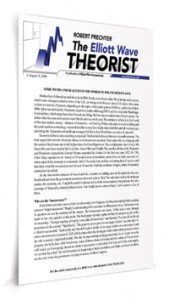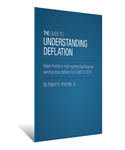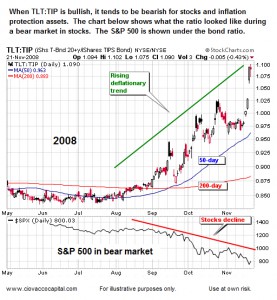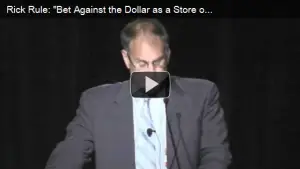The Market Myths Exposed eBook sets the record straight Not knowing the truth can be hazardous in just about any type of situation, but especially when it comes to your financial future. To help you decipher market truth from myth, Elliott Wave International put together Market Myths Exposed, a free 33-page eBook that takes the 10 most dangerous investment myths head on and exposes the truth about each in a way every investor can understand. Originally published in 2009, it's still just as valuable as ever. Get your free eBook here. Here are the first two myths from Market Myths Exposed: … [Read more...]
Another Way to Measure Inflation
In this article Jeff Clark shows us how to think about prices and purchasing power in a different way. The true measure of inflation is in relation to how much stuff your money can buy and in reality it is also related to the return you can get on your investment. If you can get 10% on your money a 5% inflation rate isn't so bad. But if you own any assets and they are only appreciating at 1% (or worse yet depreciating) and prices are increasing at a 5% rate the value of your assets are declining (i.e. they are being insidiously and secretly being stolen by the government printing presses). In this article Jeff will give you another way to look at the issue of prices and perhaps open your … [Read more...]
A Not-So-Funny Thing Happened on the Way to the Economic Recovery
By Bob Stokes On December 13 the Federal Reserve left interest rates unchanged. The Fed's statement said "the economy has been expanding moderately." On December 15, economic reports included: weekly initial jobless claims hitting a three-and-a-half year low; the Philadelphia Fed's Business Outlook for December surprised to the upside; and the National Retail Federation raised its holiday sales forecast. Even so, a not-so-positive thing also happened on the way to the "economic recovery": "Americans got much poorer last quarter, as their collective household net worth suffered the biggest decline in three years." New York Times, December 8 Other things also happened on the way to … [Read more...]
The US’s Education Bubble
By Doug Hornig and Alex Daley, Casey Research In the world of finance, there is always talk of bubbles – mortgage bubbles, tech stock bubbles, junk bond bubbles. But bubbles don’t develop only in financial markets. In recent years, there's been another one quietly inflating, not capturing the attention of most observers. It's an education bubble – just not the one of student debt that has graced the pages of the New York Times and so many other publications in recent months. The problem is not that we are overeducating ourselves as many would have you believe. Rather, it’s that we are spending a fortune to undereducate ourselves. The United States has always been a very educated … [Read more...]
“Darkest Days” for the Economy: Behind Us, or Just Ahead?
Economic skies forecast: slowly clearing, heavy rain returning, or cyclone? Many people still talk about a "recovery," or at worst only see a possible double-dip recession. But what if the mistake was to think the economy was only in a recession in the first place? It can't "double-dip" when it never truly recovered: "The respite following the 2009 stock market low is not a new expansion. It has failed to improve housing sales, barely caused employment to budge, and hasn't managed -- despite the unprecedented manufacture of new Fed money -- to get the total supply of credit back above its 2008 high." Elliott Wave Theorist, Sept. 2011 Indeed, the Federal Reserve's quantitative easing … [Read more...]
Adam Fergusson: “Inflating your economy means playing with fire”
GoldMoney founder James Turk interviews When Money Dies author Adam Fergusson, who discusses the parallels and differences between the Weimar inflation and the situation in the US and Europe today. "I don't see how any of these [Western] economies can grow their way out of the extraordinary debts that they have." … [Read more...]
America’s First Deflationary Depression: Is a Bigger One Ahead?
Social psychology precipitates economic depressions Don't blame Martin Van Buren for America's first deflationary depression. Social mood rode higher in the saddle than did our 8th President, who only stood 5' 6". Elected in 1836, by the time Van Buren assumed office in March 1837 a speculative bubble had burst and a banking crisis was at hand (sound familiar?) -- the national mood had turned south and the "Panic of 1837" followed. Van Buren was known as "The Little Magician," but he could not pull an economic recovery out of the hat. He met defeat seeking a second term. America's first deflationary depression lasted until 1842. Van Buren blamed over-zealous business practices and a … [Read more...]
Markets Fear Deflation
The best way to know the future is to survey millions of people and analyze their responses. That is exactly what the market does every day. And even better Mr. Market knows not only what people say they believe but where they are putting their money as well. In the following article Chris Ciovacco, the Chief Investment Officer for Ciovacco Capital Management shows us how the markets view the current possibility of deflation. Chris has an amazingly simple chart that shows us exactly what the market is thinking right now. That chart is the ratio of Treasuries to Treasury Inflation-Protected Securities (TIPS). Currently the ratio is indicating a deflationary bias in the market. When you think … [Read more...]
Rick Rule: “Bet against the dollar as a store of value”
In this excerpt from the Casey Summit When Money Dies, seasoned resource investor/broker Rick Rule discusses risk management and explains why the greatest risk you face as an investor is located to the left of your right ear and to the right of your left ear. Listen to Rick's complete summit speech – plus those of nearly 30 other renowned financial experts – from the comfort of your home. More than 20 hours of audio recordings on CD or MP3, including the experts’ top stock picks. Learn more. … [Read more...]
Michael Maloney: “We pay tax for the privilege to have currency”
In this video excerpt from the Casey Summit When Money Dies, Rich Dad advisor Mike Maloney explains how currency is created, "fractional reserve banking," and why our banking system is a pyramid scam of epic proportions. Listen to Mike's complete summit speech – plus those of nearly 30 other renowned financial experts – from the comfort of your home. More than 20 hours of audio recordings on CD or MP3, including the experts’ top stock picks. Learn more. … [Read more...]





